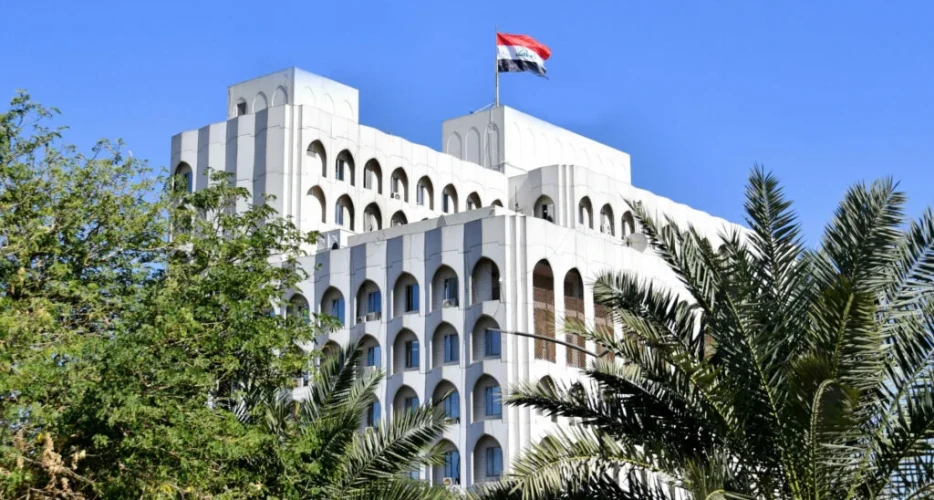Iraq’s Parliament Approves 93 New Ambassadors in Long-Awaited Overhaul of Diplomatic Corps

Peregraf
For the first time in more than a decade, Iraq’s parliament has approved a sweeping slate of new ambassadors, ending years of deadlock that had left many of the country’s embassies and consulates abroad without permanent leadership.
On Tuesday, lawmakers voted to appoint 93 new ambassadors in a deal struck among Iraq’s competing political parties. The list, which had been the subject of protracted negotiations, includes 49 Shiites, 23 Sunni Arabs, and 17 Kurds. Among them are representatives of Iraq’s minorities: four ambassadors drawn from Christian, Yezidi, and Sabi’a communities — two Christians, one Yezidi, and one Sabian-Mandaean.
"This approval is an important step to fill the gap in the Iraqi diplomatic sector," Dilan Ghafoor, Head of the Foreign Relations Committee in the Iraqi parliament told Peregraf. "We have worked on this issue continuously since the beginning of this parliamentary session."
Years of Diplomatic Paralysis
Iraq’s missions abroad have languished for years without permanent ambassadors. The last major appointment came in 2009, when 63 ambassadors were confirmed, following a smaller round of 49 in 2004. Since then, political infighting has prevented successive governments from agreeing on new candidates, leaving much of Iraq’s foreign service adrift.
Today, Iraq maintains only 27 active ambassadors, according to government figures. Eleven of them are of retirement age. Five have already returned to positions inside the Foreign Ministry, further deepening the shortages at embassies overseas.
That gap is especially stark given Iraq’s global footprint: the country has 83 diplomatic missions abroad — 70 embassies and 13 consulates — in addition to four new embassies recently opened. At least 24 senior offices within the Foreign Ministry itself are, by law, required to be led by an ambassador.
The approval of 93 new names, lawmakers say, is meant to finally address that vacuum. But the road to confirmation was far from smooth. Previous attempts collapsed amid bitter disputes over party quotas and sectarian representation. A 2021 proposal to appoint 70 ambassadors fell apart before it even reached the floor.
Party Quotas Shape the List
As with many high-level appointments in Iraq, the ambassadorial list reflects a delicate balance of power among the country’s factions. the new ambassadors is as follows: 49 Shiites, 23 Sunni Arabs, and 17 Kurds — nine nominated by the Kurdistan Democratic Party KDP and eight by the rival Patriotic Union of Kurdistan (PUK).
Roughly half of the 93 nominees are career diplomats drawn from within the Foreign Ministry. The other half are political appointees, divided among parties according to their strength in parliament. Each nominee, lawmakers say, was vetted on criteria including diplomatic skills, years of service, and professional assessments.
A Rare Gain for Women
One of the most striking features of the new list is the inclusion of five women among the newly appointed ambassadors. This brings the total number of female ambassadors for Iraq to six, a significant increase from the single woman currently serving in the diplomatic corps. Even with this progress, women remain a small minority in a diplomatic corps overwhelmingly dominated by men. Notably, three of the five newly appointed female ambassadors are Kurdish, with one each from the Shia and Sunni communities.
MP Ghafoor, herself one of the most senior Kurdish women in parliament, criticized the imbalance. "The number of women ambassadors is low and should have been higher," she said. "The political parties, especially the Shiites and Sunnis, do not give opportunities to women."
She recalled her own uphill battle for recognition. "Since 2005, I have been the first woman to head an A-class committee in the Iraqi parliament," she said. "At first there were many objections that I should not take the post. But my party, the PUK, insisted that I take it, because it attaches importance to the role of women."
Despite the large number of appointments, not all 93 will immediately take up posts overseas. At least 20 of them will be assigned to head departments inside the Foreign Ministry, where directors are legally required to hold the rank of ambassador.
"Some of them will become ambassadors abroad after four years of service, while others will be trained inside the ministry," MP Ghafoor explained.
This staggered deployment is designed to ease pressure on the ministry, which has struggled to staff senior roles both at home and abroad.
Official Praise from the Government
Prime Minister Mohammed Shia’ al-Sudani hailed parliament’s vote, calling it a long-overdue reform. In a statement, his office praised the "spirit of cooperation" among lawmakers, the Council presidency, and the Foreign Relations Committee in breaking the deadlock.
"No vote on ambassadorial posts had taken place since 2009," the prime minister’s office said. "The government has been keen to end the state of vacancy that persisted for years in certain diplomatic posts. This measure will enhance the capacity of the diplomatic institution to better serve the Iraqi people."
The Ministry of Foreign Affairs echoed that view, describing the appointments as a step toward strengthening Iraq’s international presence. "This will contribute to expanding our network of relations with countries around the world, protecting Iraq’s supreme national interests, and serving the Iraqi community abroad," the ministry said in its own statement.
Analysts say the ambassadorial appointments highlight deeper problems in Iraq’s political system, where ministries and diplomatic posts are divided along sectarian and partisan lines.
Still, even skeptics concede that filling the vacancies may bring some stability to Iraq’s fractured diplomacy, especially at a time when Baghdad is seeking to balance its ties with Washington, Tehran, Ankara, and the Arab Gulf states.
For MP Ghafoor, the appointments are only a first step. "The Iraqi diplomatic sector has been in a vacuum for many years," she said.